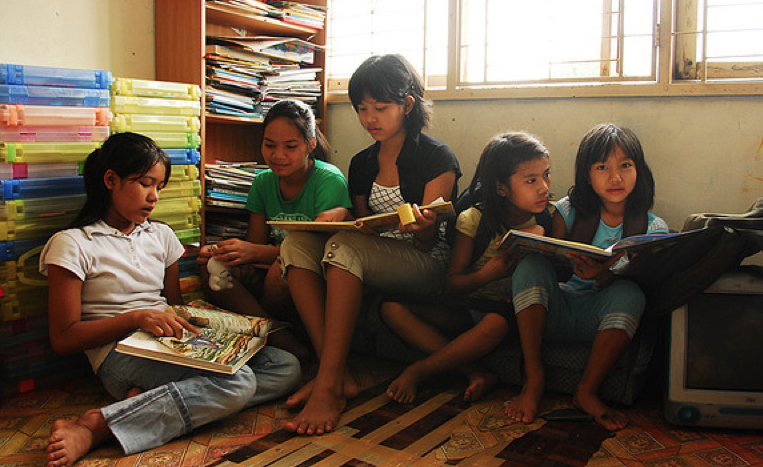 Children with learning disabilities are among the most disadvantaged in Malaysia, and many thousands of them find themselves unable to access even basic education. The National Human Rights Commission of Malaysia (SUHAKAM) is determined to confront this longstanding injustice, however. With the support of the Center for Economic and Social Rights (CESR) it is working to ensure these children are not left behind in efforts to achieve universal primary education.
Children with learning disabilities are among the most disadvantaged in Malaysia, and many thousands of them find themselves unable to access even basic education. The National Human Rights Commission of Malaysia (SUHAKAM) is determined to confront this longstanding injustice, however. With the support of the Center for Economic and Social Rights (CESR) it is working to ensure these children are not left behind in efforts to achieve universal primary education.
Malaysia, which has ratified both the Convention on the Rights of the Child (CRC) and the Convention on the Rights of Persons with Disabilities (CRPD), is currently progressing towards universal primary enrollment through its “2013-2025 Education Blueprint”. Effective monitoring by civil society organizations and, crucially, the Human Rights Commission will be essential if the plan is to achieve its goal of ensuring equal access to quality education for all children.
CESR has been working with SUHAKAM to ensure the government’s plan reaches children with learning disabilities, and this collaboration has now culminated in a new SUHAKAM report. ‘The Right to Education for Children with Learning Disabilities’ was developed with guidance from CESR as part of a joint initiative between the Center and the Asia Pacific Forum aimed at strengthening the role of national human rights institutions (NHRIs) in protecting economic and social rights. This project, which has supported collaborative partnerships with NHRIs in the region since January 2012, has already aided the New Zealand Human Rights Commission’s work to monitor human rights after the Christchurch and Canterbury earthquakes, and that of Palestine’s Independent Commission on Human Rights, in ensuring the Palestinian Authority’s National Development Plan realizes economic and social rights.
The new SUHAKAM report aims to increase the number of children with learning disabilities receiving inclusive and quality primary education by raising awareness of the challenges they experience in this regard, and identifying the gaps in information about education for these children. It is also designed to help build connections between government agencies and civil society to promote more participatory, transparent and accountable education policy. The document examines challenges to realizing the right to education for children with learning disabilities, including logistical difficulties in accessing learning facilities, inconsistent implementation of screening and assessment processes, the lack of adequate funding for programs, and the lack of adequate support in learning institutions. It also makes recommendations aimed at helping the government effectively improve access to education for this community.
SUHAKAM’s research utilizes the four-step OPERA Framework for uncovering patterns of socio-economic rights deprivation and linking these deprivations to weaknesses in design or implementation of government policies. The analysis builds on a series of workshops in which SUHAKAM’s staff was introduced to OPERA’s tools, including the identification of indicators and benchmarks, gathering primary and secondary data, and analyzing budgets. Researchers at SUHAKAM deployed OPERA to clearly articulate the government’s legal obligations and to examine the current challenges that exist in realizing the right to education for children with learning disabilities. The project was spurred by concerns that a large number of children with learning disabilities appear to be excluded from primary education, while little accurate data is readily available in this regard.
A recurrent theme in the report is the need for the government to gather and make available accurate disaggregated data on children with learning disabilities, along with related budgetary information. The report therefore recommends that the government collect such data and statistics on access to education among children with learning disabilities, at both the primary and secondary levels, and that the collection of this data be systematized and shared among all relevant government agencies.
Having already presented their findings to the Ministry of Education – which has recognized the validity of the concerns raised – SUHAKAM is now planning follow-up discussions to monitor progress in addressing them. The report will also be presented to the National Council for Persons with Disabilities, with a view to garnering its support, and there are plans for further school visits around the country in 2017.